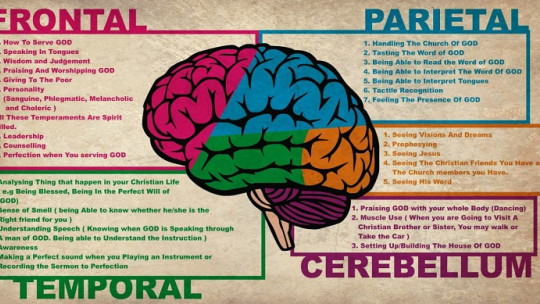Sometimes, we have come to ask ourselves in conclusion about an extensive journey of mitigating emotional conflicts: “why can’t I be calm with anyone?” Constant confrontations, isolation, social avoidance and other frustrated interpersonal events can be caused not by the most obvious thing (others) but by a conflict that for many years has become the content of our unconscious, conflicts that are so painful, embarrassing, frustrating. and immoral things that we refuse to present and that in the best case it is better to look for it in others: projection. In this PsychologyFor article we explain What is projection in psychology: definition and examples<
What is projection
Projection is a term from psychoanalysis. The definition of projection says it is a mechanism that consists of attributing to another person what happens to oneself< Projection is a way of functioning that is observed in people who attribute to another what is happening to themselves, usually unconsciously. Projection does not allow contact with oneself or others. For example, many people who use projection consider that all other people have defects but that they do not.
In psychology, we use projection to detect certain character traits, such as motivations, problems and frustrations< People's projective tendencies develop significantly in paranoid-type personalities. Some of these people with this pathology manifest a tendency towards constant evaluation of others, they are very sensitive and capable of perceiving the unconscious of others and when interpreting it they forget about their own unconscious. In severe cases, projection leads to vicious deformation or a false image of reality (paranoid delusion). In some cases, well-channeled projection can generate incredible artistic or scientific creations.
Projection as a defense mechanism in psychology
Hermann Hesse (1919) expressed something similar to the theory of projection as a defense mechanism, and he did so with the following phrase:
When we hate someone, we hate in their image something that is within us.
Projection is one of the defense mechanisms most used against materially external threats, imputing responsibility for our own traits, feelings and behaviors to another person or environment. The individual attributes one’s own shortcomings, virtues or defects to other people even down to his own internal conflicts of ambivalence.
Projection as a defense mechanism generally operates in situations of affective/emotional conflicts or internal conflicts, where one ends up attributing to the environment (people or things) one’s own feelings, thoughts or impulses. are uncomfortable or unacceptable to the person< In addition to the negative content, everything that guarantees and ensures the continuities of narcissism, the maintenance of intersubjective links, and conservation processes is also transmitted: identifications, defense mechanisms, ideals, doubts and certainties.
We thus understand that the projection can function as resistance to face contact with one’s own identity, thus attributing to others the emotions that we ourselves feel.
Projection as a defense mechanism causes us to spit or expel our experiences onto the world, emotions or personality traits that we wish to dislodge of ourselves for being unacceptable. Everything that is relatively rewarding is accepted by the ego – as something belonging to it – but everything that appears to be painful and unrewarding is considered as something foreign to the ego.
Projection Examples
The frustration that characterizes a person who usually creates projections of himself on other people disappears when he begins to believe that his defects, his deficiencies and his failures are also possessed by others, or that it is others who cause these failures, deficiencies. or anything they don’t want to have. Below we share some examples of psychological projections:
Stealing and believing that others will steal from you
People who think in a certain way (for example, about the justification of an act of corruption) believe that others also think the same. For example, a store owner steals a few grams of each kilo of the product you sell, when you have to buy in another store you will be the most distrustful user (customer).
Thinking about being unfaithful and being afraid that your partner will be unfaithful
In a relationship, one of the two begins to present symptoms of anxiety (for example, they report feeling insecure and hopeless), as a consequence of constant ideas of infidelity from their partner, who has repeatedly tried to make it clear and evident that this infidelity is not it is real. Through an analysis, it is discovered that this person with anxiety symptoms has not been unfaithful to his partner either, but that there are many people who he found attractive and with whom he would very much like to have sexual relations , but his own conscience – and respect for his partner – does not allow him to do so. In addition to this projection, the person also projects his insecurity about your physique and personality comparing yourself to people close to your partner who you find attractive. In this article we talk about the causes of insecurity and how to overcome it.
Scolding your children for behaviors you do yourself
Another example of very frequent projection is that of parents towards their children, where, for example, the parent constantly demands and protests about the child’s immorality and his behavior against the principles that have been taught to him, and also about the child’s failures. that this child may have, the same ones that the father could not overcome and principles that he has transgressed in different situations, either in his freshness or in current lack of inhibitions.
How to avoid projections
Defense mechanisms involve defensive behavior with which the personality operates to maintain balance, that is, a regulation of tension and excitement.
With this defensive behavior, the body aims to achieve an adjustment or adaptation that dissolves all types of insecurity, frustration, danger, tension or anxiety. However, defensive behavior does not resolve conflicts, but is limited to restricting the ego’s ability to act in the face of disturbing objects.
Projections are conflicts or internal elements that are put out as an attempt at dissolution, but that, evidently, cause a journey in the opposite direction: the maintenance of frustrations and tensions. It is important a careful analysis led by a professional to determine what those internal elements may be that cause this inconsistency with the environment.
How to work with psychological projections? Observing and meditating on whether there are constant confrontations with family, friends, partners and at work will help to find and determine if in reality what is happening and developing this instability is something with ourselves.
This article is merely informative, at PsychologyFor we do not have the power to make a diagnosis or recommend a treatment. We invite you to go to a psychologist to treat your particular case.
If you want to read more articles similar to What is projection in psychology: definition and examples we recommend that you enter our Cognitive Psychology category.
Bibliography
- Hermann Hesse. (1919). Demian. Novel Alliance.








